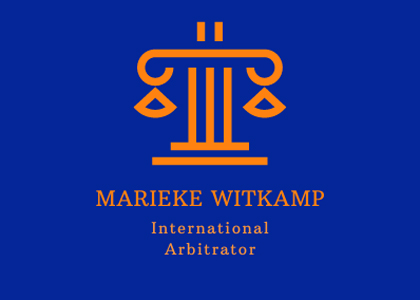Can you tell us something about your company (services, products, background)?
I provide dispute resolution services to international companies (small and large). I do that mainly as arbitrator but I also advise (Texas based) companies how to avoid disputes when drafting contracts or what to do when they have a dispute about a contract.
I am originally trained as a commercial judge in the Netherlands and became an international commercial and arbitration lawyer after moving abroad.
I have more than 20 years dispute resolution experience in a wide range of commercial disputes and in various roles:
- as a judge and arbitrator in the Netherlands,
- as arbitration attorney the Middle East,
- as litigation lawyer in Texas, USA, and as
- in-house counsel in Qatar and the Netherlands.
Because of all these different roles I have had, I am familiar with every perspective when it comes to dealing with disputes: as the court, as counsel and as the client.
My areas of expertise are maritime, insurance, construction, energy law and post M&A disputes but I am comfortable with any contractual dispute that comes up. As a judge you have to deal with anything that enters your docket.
Why did your company choose Texas?
Short answer: my husband’s work led us to Texas, for the second time. We lived here first between 2014-2017 and during this time I worked at a boutique litigation firm, got my Master’s degree in US law at the University of Houston and passed the Texas bar exam. It’s good to be back in Houston. Not only because it’s a great place to live but also to be able to be professionally active again here in Texas. This is the place to be when it comes to Energy in all its forms! Houston offers a lot of opportunities to businesses and professionals, so I am happy to be part of this dynamic world again.
What advice can you give Dutch entrepreneurs who want to do business in Texas?
Please be aware of the dispute resolution provision in your contracts. In such a clause you set out how to handle any disputes that arise out of a contract. You usually agree whether you go to court or arbitration if you cannot resolve a dispute and what the applicable law will be to the contract.
Parties often don’t pay too much attention to a dispute resolution clause and agree with the standard clause of the contract. The reason for this is that at the time of contracting, a dispute is the last thing on your mind. You enter into a contract with the best intentions. You can however regret the choices you made to not negotiate a dispute resolution provision if things do not go as planned. It may let you end up in a foreign court, which in the case of Texas could be before a jury or an arbitration procedure under a jurisdiction you don’t understand.
My advice is know what is important for you and get legal advise from your in-house counsel or external experts who can help you navigate differences in legal systems. They will help you get the contractual comfort you require before you enter into agreements – setting up a sound agreement will help you tremendously along the way.


